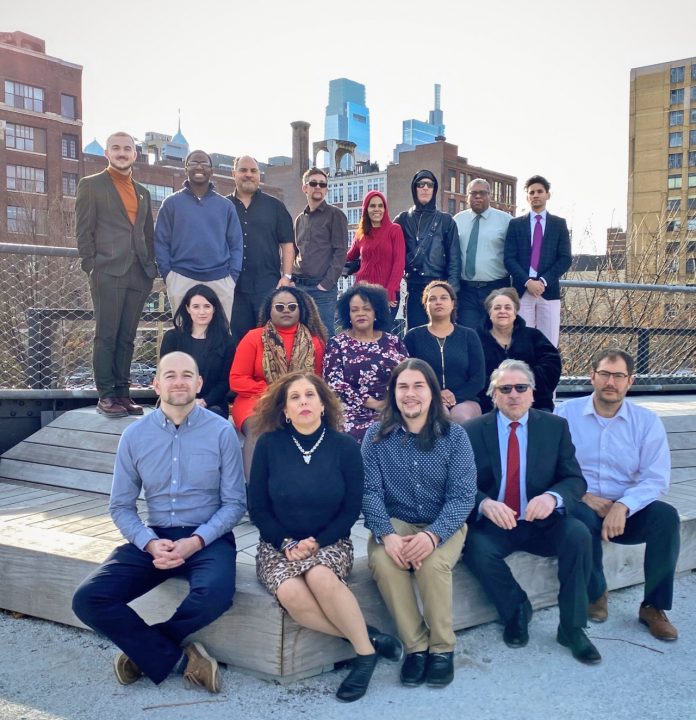
Like many other integral businesses in Philadelphia and the Commonwealth of Pennsylvania, the nonprofit public interest law firm AIDS Law Project of Pennsylvania (ALPP) continues to provide its clients with remote legal services during state-wide shutdowns to thwart the spread of the new coronavirus. New and existing clients can still reach ALPP staff by phone or email.
Gov. Tom Wolf last week ordered all non-life-sustaining businesses in Pennsylvania to close their locations by 8 p.m. on March 19. The City of Philadelphia imposed a Stay at Home Order effective Monday, March 23, calling for only essential businesses to remain open and extending the city’s emergency restrictions beyond March 27.
Founded in 1988, ALPP provides free legal support to individuals living with HIV and AIDS, and others who have been impacted by the HIV epidemic, according to the organization’s website. ALPP is the only independent public-interest law firm in the U.S. devoted to HIV and AIDS law.
The organization’s practice areas include HIV/AIDS discrimination, confidentiality of HIV-related information, HIV testing protocols, public/private benefits, housing, wills, living will and powers of attorney, financial/consumer debt and immigration. ALPP also runs special programs, including Criminal Records Resolution, Standby Guardianship and Compassionate Release.
“We’re taking in new clients and we’re returning calls to existing clients who have questions about their public benefits, their housing, their estates, their real estate — their usual range of issues,” said Yolanda French Lollis, ALPP’s managing attorney. “We’ve had a couple of people call concerned about their health insurance and not being able to get their prescription meds. That’s of great concern because we want to make sure everyone stays healthy right now.”
ALPP published a Coronavirus Bulletin Board on its website detailing information about revised benefits and services during the new coronavirus-related shutdowns, which will be updated on a regular basis. Some of that information includes the Philadelphia Housing Authority’s temporary suspension of evictions, the Pennsylvania Supreme Court’s closure of all courts to the public for non-essential functions, suspension of utility shut-offs including those provided by PECO and Pennsylvania’s Medical Assistance Program coverage of COVID-19 testing, to name a few.
“What we’re finding is that the companies — the private insurers, the HMOs — they’re working remotely too, so we’re able to reach those people,” Lollis said. “Even better news, the court system is shut down, so nobody’s getting evicted.”
Lollis also noted a couple of challenges in providing remote legal services. “A lot of our people depend on walk-ins, and they can’t do that,” she said. “People don’t always have access to phones or their minutes are gone off their phones or whatever it is. Some people don’t have the ability to speak privately in their own homes or wherever they’re living.”
According to a 2020 Human Rights Campaign Press Release, one in five LGBTQ people are living in poverty, and 40 percent of homeless youth identify as LGBTQ. The organization also reported that the top five industries in which LGBTQ adults work are those that are most substantially hit by restrictions surrounding the new coronavirus, which impacts 40 percent of LGBTQ workers. Fifteen percent of LGBTQ individuals work in restaurants, compared to 6 percent of their straight/cisgender peers.
Lollis commented on collective concerns about the organization’s clients who experience homelessness, “and not really knowing what’s going on with them. It’s really troubling.”
“We have a strong housing program to prevent homelessness,” Lollis said. “We also represent folks seeking stable, affordable housing. As HIV stigma is pervasive, we are always cautious about outreach to people who aren’t expecting us or do not have a private space to talk about HIV. Instead, we rely on our colleagues, such as the Homeless Advocacy Project, to refer people living with HIV to us, as needed.”
New and existing clients can call and leave a message for ALPP staff at 215-821-7899, or email at intake@aidslawpa.org. Clients can also leave a message for a particular staff member by calling the office at 215-587-9377.
Ask questions, get answers about COVID-19








